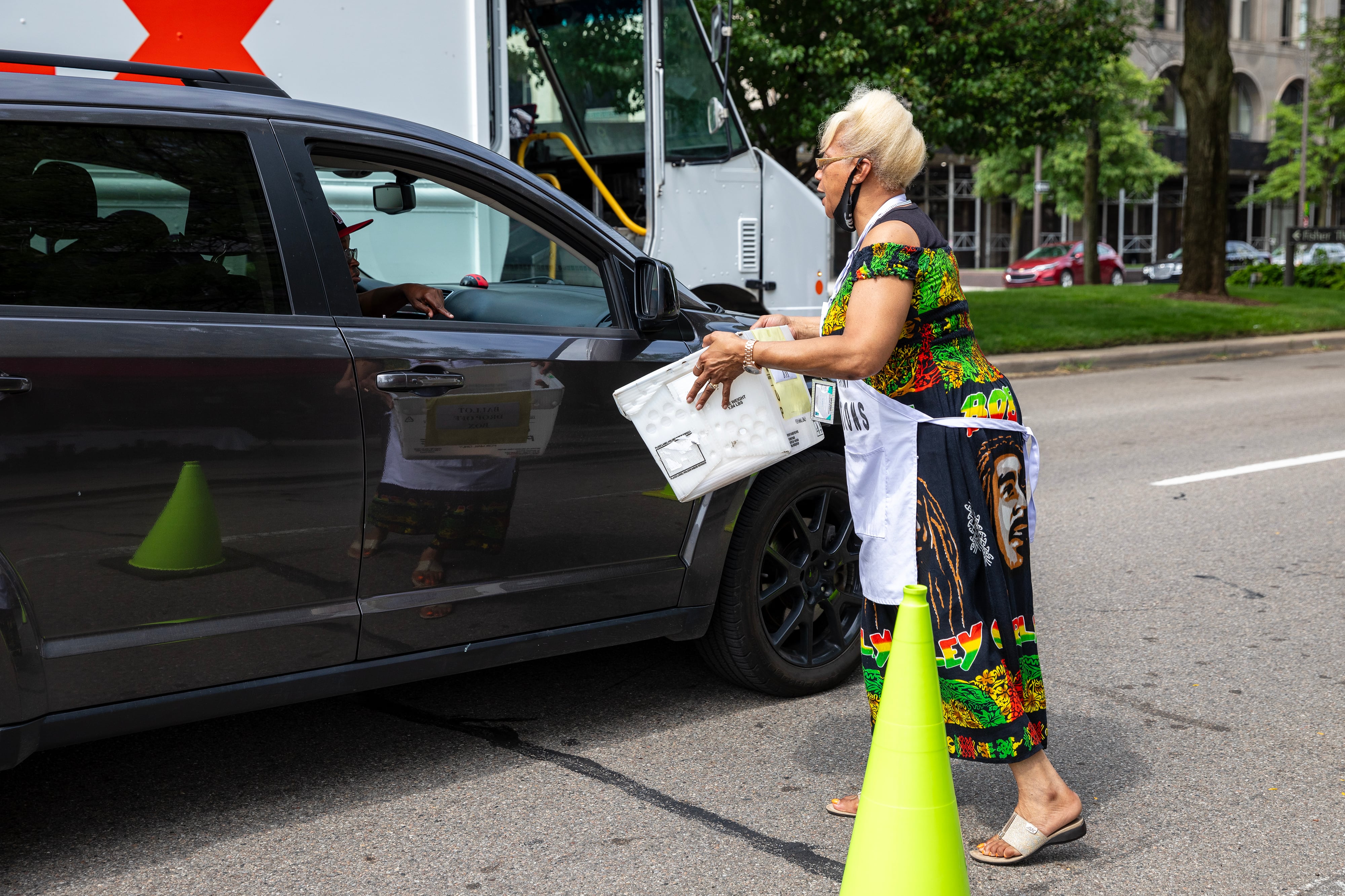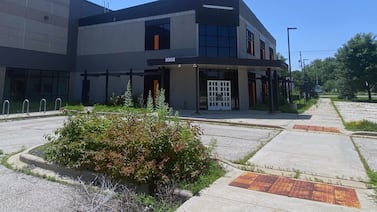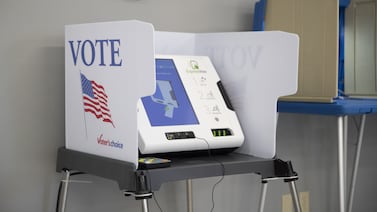Votebeat is a nonprofit news organization reporting on voting access and election administration across the U.S. Sign up for Votebeat Michigan’s free newsletter here.
Even after nine days of early voting and 40 days to return absentee ballots, Michigan’s August primary appeared to be a relatively low turnout election.
Officials said the majority of voters had already cast their ballots before election day on Tuesday. As of Monday, more than 1 million people across the state had voted, the vast majority of them doing so absentee.
Secretary of State Jocelyn Benson said Tuesday night that she expected totals to be near 2 million, which would be less than a quarter of the state’s total registered voters. In 2022, there were more than 2.1 million votes cast in Michigan’s August primary. Four years ago, there were more than 2.5 million votes cast.
There are several reasons turnout was low, officials said. It could have been a general lack of interest in the races on the ballot, which featured U.S. Senate primaries and legislative races.
“At this point, most people are just ready for November,” Canton Township Clerk Michael Siegrist said Tuesday afternoon.
The weather also could have played a factor. Storms rolling through the southern part of the state knocked out power for some jurisdictions and made roads difficult to travel in others. There were three voting locations in Kalamazoo County that had to shelter in place because of a tornado warning, Benson said, but no voters were affected.
In Royal Oak, officials had to move two precincts to the Royal Oak Farmers Market after a power outage took out the Salter Community Center. The Detroit News noted similar struggles in Warren, Grand Rapid, Flint, Clinton Township and other communities across the state.
The storms brought in humid weather that also caused some tabulators to struggle to read ballots marked in ballpoint pen. Humidity can mean the ballot paper swells and that ink doesn’t dry as quickly, and it gets caught on the machines’ scanners, prompting error messages. Clerks had to figure out how to clean machines or even lend tabulators to other communities.
The Detroit Free Press reported that in Farmington Hills, some voters had to navigate problems finding their precinct after repairs and a small fire meant that the location changed twice. While the city sent out a letter and map alerting voters last month, there wasn’t time for another mailer after the fire, the Freep reported. Voters were supposed to receive a text, but several voters did not.
There were also potential instances of alleged voter intimidation throughout the state. Officials with the Department of State said Tuesday morning they were hearing reports about potential continued electioneering within 100 feet of the entrance of a polling place in Plymouth Township. The News reported about concerns initially on Friday, and officials said there were continued reports Tuesday morning. There were potential instances of intimidation, leading to township officials to contact local candidates about concern. Law enforcement also responded to an instance of potential voter intimidation in Crawford County, the Freep reported, where people who were campaigning allegedly partially obstructed an entrance to a polling location.
For the most part, though, elections ran smoothly throughout the state. More than 1,800 people registered to vote today, Benson said in a news conference after polls closed. Lines were minimal or nonexistent, she added.
She reminded voters that accurately tabulating races — especially close ones — takes time and is not a sign of a problem. Officials said their new option to pre-process ballots did help communities get results out faster, though. The practice means clerks open absentee ballot envelopes and begin the earliest stages of processing them — but not tabulating them — days in advance. In Canton, for example, Siegrist pointed to how absentee results were in before election day votes.
Since the pandemic, Michigan voters have largely shifted to early or absentee voting. It means that when there are issues like power outages, she said, they are less disruptive to voters.
“It underscores how election day is now essentially becoming the last day to vote, the last day to turn in your ballot, as opposed to the day everyone votes,” Benson said.
Hayley Harding is a reporter for Votebeat based in Michigan. Contact Hayley at hharding@votebeat.org.






